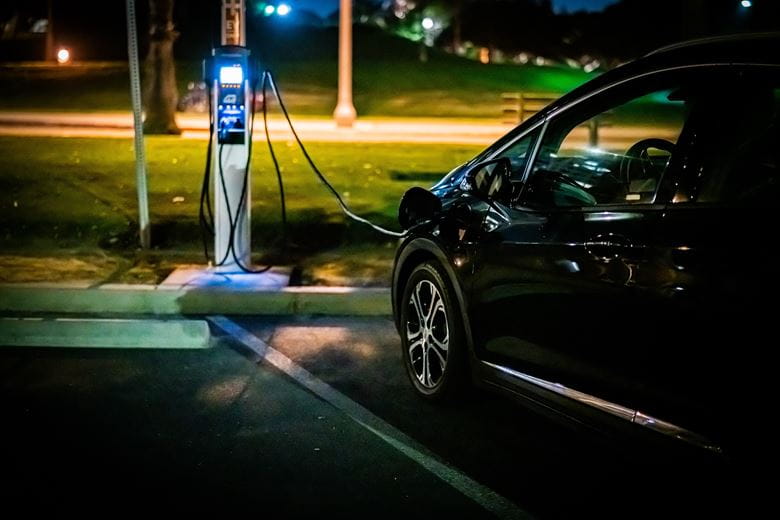For landowners of property with car parking facilities, the transition to electric vehicles (EVs) presents a major commercial opportunity.
The provision of EV charging can provide landowners with a new stream of income, and as well helping futureproof the property and attract new customers.The UK is now less than eight years away from banning the sale of all new petrol- and diesel-powered cars in 2030. In light of this, and the prevailing global trend to decarbonise transport, all major vehicle manufacturers are shifting model production away from fossil fuel powered vehicles towards zero-emission vehicles. EVs have become the zero-emission vehicle of choice for both manufacturers and consumers due to recent technological advances in battery technology enabling the production of cheaper and longer-range EVs.
The electrification is also transforming how vehicles interact with the built environment, particularly in how and where consumers refuel their vehicles. Where internal combustion engine vehicles can only refuel at petrol filling stations, EVs could potentially refuel anywhere with a parking space and an electricity supply. This is leading to the decentralisation of vehicle refuelling infrastructure. For EV consumers who have access to EV charging at home, it is likely that up to 90% of their vehicle refuelling will be done there. However, consumers with no access to private charging will be heavily reliant on publicly available EV charging facilities at destinations such as offices, retail and public parking, or at on-the-go rapid charging facilities on the strategic road network, that allow EVs to charge in under 30 minutes.
Ultimately, EV charging is creating a business opportunity where landowners with parking facilities can become a refuelling provider.
How can landowners benefit from electric vehicle charging?
1. Leasehold site disposal
A landowner could rent out parking spaces to an EV charging developer, who would provide an annual rent or revenue share in exchange for exclusive rights to operate EV chargers.
Depending on the location and exposure to vehicle traffic, landowners could expect a range of rental incomes. If the property is located at a retail, office, or public parking destination, a landowner could expect to receive an annual rent in the region of £1,500-£2,500 per EV charging bay, with RPI index-linked rent reviews.
For landowners with strategic land suited to on-the-go rapid charging facilities, rents in the region of £20,000-£40,000 per annum could be expected for charging hubs containing 8-12 charging bays.
For sites suitable for a larger EV charging forecourt with co-located retail or hospitality, landowners could expect annual rents in the region of £40,000-£120,000 with RPI index-linked rent reviews.
2. Build, own and operate
A landowner could also invest directly in the EV charging equipment themselves. Pursuing this option would allow the landowner to maximise income generation as they would directly benefit from sales generated from selling electricity through EV charging.3. Joint venture
For those with less of an appetite for investment and seeking the expertise of a development partner, a joint venture structure can provide a share in the income generated from the EV charging facilities.
Whichever route you think suits you best, Carter Jonas can help guide you through the process, having advised a wide range of clients on EV charging from individual property owners to local authorities. We are currently advising on sites totalling over 30 megawatts of capacity.
If you have a property or land that you believe would benefit from EV charging development, please contact Jamie Baxter at Jamie.Baxter@carterjonas.co.uk.
View this month’s energy news >>
View the latest energy market update >>


